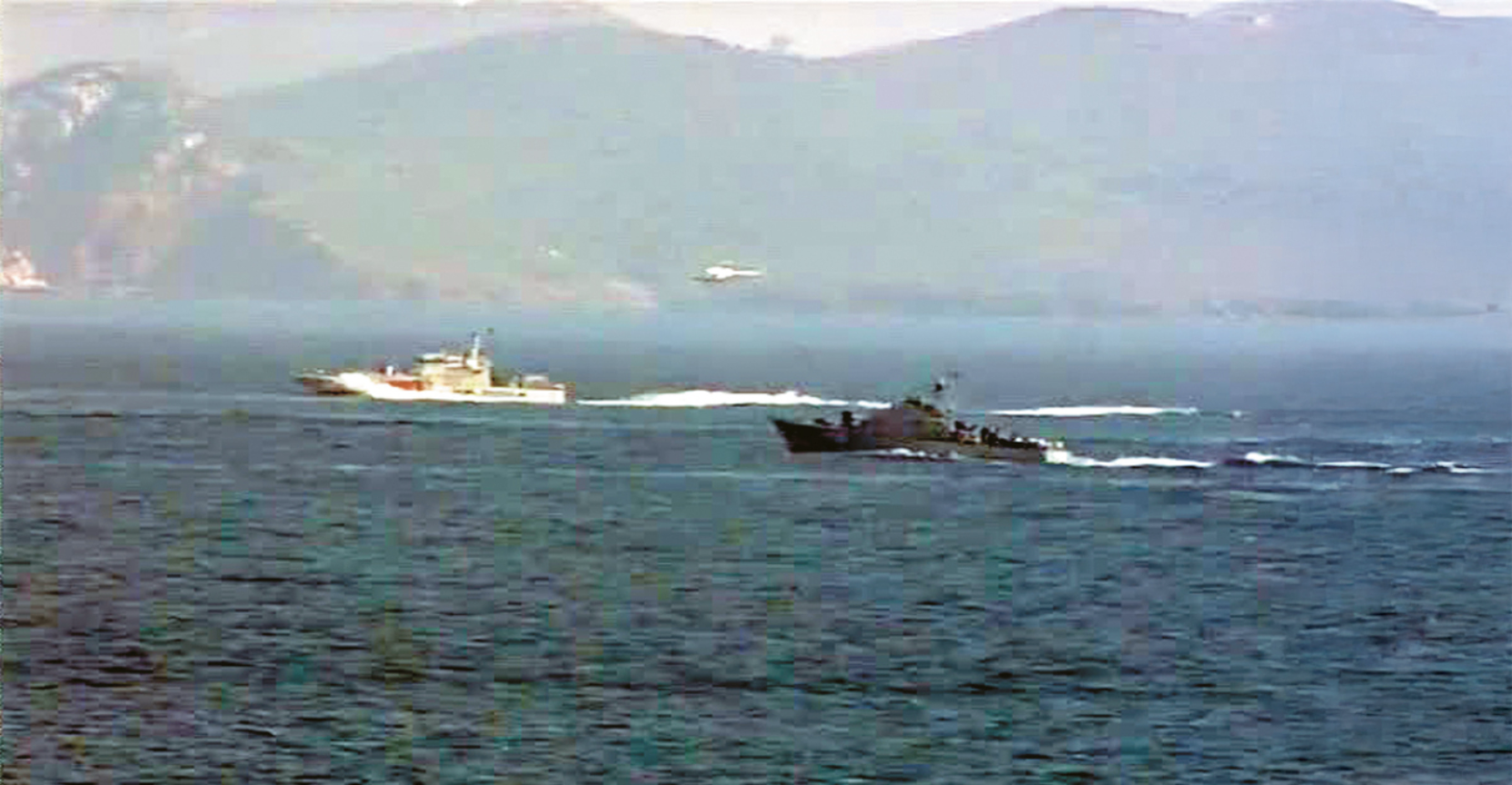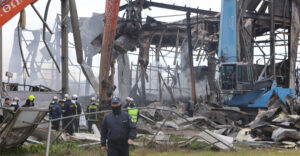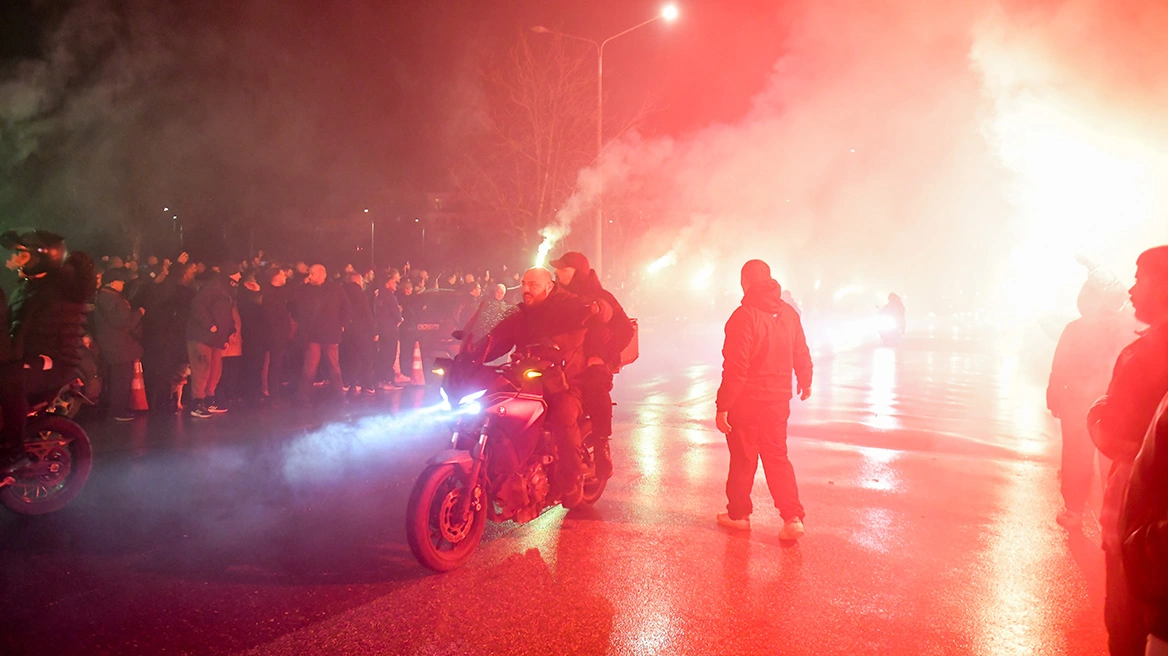The historical trauma of the December Events, essentially a composite of numerous smaller traumas and just as many enigmas, remains largely unhealed. Eight decades later, instead of resolving the questions, time has merely multiplied them. One of the great paradoxes of the December Events is that, 80 years after the bloodshed in the streets of Athens, confusion, ambiguity, and disagreement still reign: How did the so-called “Battle of Athens” begin? Who were the actual participants?
What were the exact casualties? What were the objectives of the Communist Party of Greece (KKE), those of the exiled government under Georgios Papandreou returning to Greece, and those of the powerful Allies (Britain, the Soviet Union, and the USA)? To what extent were the December Events a popular uprising, a collective resistance against the disarmament of ELAS, and to what extent an overt attempt by the communists to seize power? Did the KKE (as EAM and ELAS) genuinely enjoy the majority support of Greeks due to their resistance against the German Occupation, as the Left traditionally claims?
If the KKE had a well-crafted operational plan for the December Events, why did the bulk of its military forces remain far from Athens, along with ELAS’s most capable commander, Aris Velouchiotis? But if the KKE ultimately lacked a serious strategic plan, what did its leaders hope to achieve in the “Battle of Athens” with their guerrillas armed only with light rifles, given the overwhelming superiority of the British, who had tanks and an air force at their disposal? And what would have happened if the KKE had emerged victorious from the December Events, given that support from the Soviet Union was far from assured, shrouded instead in a veil of calculated and vacillating ambiguity, as Joseph Stalin preferred?
“For a month, battles raged in the streets of Athens, house by house, street by street, between the reserve forces of ELAS in the capital and the Commonwealth troops, the Gendarmerie, and armed collaborators, who now seized the opportunity to integrate into the legitimate forces and join the National Army of Athens,” writes Antonis Liakos. “The British had seized and fortified the Acropolis, from where they could fire on the entire city. They controlled access to the sea, the port, and the airport and possessed clear and absolute superiority. They had 60 aircraft strafing and bombing enemy positions in Athens’ neighborhoods and suburbs, 30,000 men, heavy artillery, and tanks. The number of defenseless civilians killed by air strikes on their homes and naval shelling in residential areas is incalculable. Who would dare step into the streets to collect the bodies?” (1)
Professor Liakos, a prominent Greek historian with a declared Leftist ideology, nevertheless approaches these events scientifically, posing questions without finding convincing answers: “We now know that ELAS and the KKE had drawn up timely strategic plans for the capture of Athens. Why didn’t they execute them? Even when the December Events erupted, the bulk of ELAS’s forces didn’t move towards the capital or participate in the Battle of Athens. In Athens, ELAS forces attacked police stations and government buildings, but there was no coherent plan or clear orders for confronting Commonwealth soldiers.” (2)
“Thankfully, We Were Defeated, Comrades”
The questions are numerous and interconnected, as the December Events persist as one of the greatest puzzles, if not in all of, then certainly in modern Greek history. This is evident in the awkwardness, particularly on the part of the Left, even on the 80th anniversary of those infernal four-plus weeks from late 1944 to early 1945. “Why did December happen? Why, after Lebanon and Caserta, when everything seemed to point towards a smooth and peaceful transition, did this brutal conflict occur at such a critical moment in World War II? Why this horrific bloodshed, which could have shaken the very cohesion of the anti-Hitler alliance, with unpredictable and incalculable consequences?” These are some of the fundamental questions raised in the book Thankfully, We Were Defeated, Comrades… (3)
The author, Takis Lazaridis, is neither a historian nor a scholar. However, he was a co-defendant, fellow prisoner, and nearly a co-executed comrade of Nikos Beloyannis. Thus, his “party patriotism” and lifelong dedication to communist ideals are beyond question. Precisely for this reason, his criticism of the KKE leadership’s choices before, during, and after the December Events carries particular weight. It is a scathing and painful critique, especially because it comes from within the Left.
Summarizing in a few simple phrases the endless analyses in the relevant literature, Lazaridis notes that there are two official narratives about the December Events. The first belongs to the Right, which broadly argues that December was yet another bloody chapter—the second, in fact—in the KKE’s attempts during the 1940s to seize power through armed rebellion. The first chapter was ELAS’s clashes with nationalist resistance groups (EDES, EKKA, etc.) during the Occupation, while the third chapter was the Civil War of 1946–1949.

The failed communist attempt in December 1944 was preceded by the breach of two agreements, first at Lebanon and then at Caserta, which the KKE had signed—albeit under Britain’s heavy-handed tutelage—with representatives of the bourgeois government.
The second interpretation of the same events is the one adopted by the Left. According to Lazaridis, “the Left argues that December was the ‘crowning moment,’ the ‘jewel’ of the Resistance, the proud response of the people to the crude British intervention, to the attempt of British imperialism to shackle our country. Both narratives are ‘miles apart’ from reality. This is what the available historical evidence and common sense suggest.”
Fatal Errors
Takis Lazaridis outlines the erratic, almost paranoid actions of the KKE leadership during the December Events, led by Giorgis Siantos, a tobacco worker with only an elementary school education. Siantos, who had previously all but branded the KKE’s delegates in Lebanon as traitors for signing an inexplicable, unconditional agreement of submission to a government essentially appointed by the British, later decided that this agreement—unacceptable to the Left—should be both adhered to and completely disregarded. He aimed to adjust it post-factum to suit the KKE’s agenda. Following the December battles, which he insisted on pursuing to the bitter end, sacrificing hundreds of comrades in vain, Siantos signed the Varkiza Agreement. By May 1945, when the KKE’s natural leader, Nikos Zachariadis, returned to Greece from the Dachau concentration camp, his “praise” for Siantos was an accusation of being a British intelligence agent.
Beyond the communist parties’ chronic tendency for internal strife, Zachariadis’ view of Siantos seems not entirely unreasonable. If he wasn’t consciously serving British interests, Siantos’ decisions during critical phases for the Greek Left remain baffling. Supporting this perspective, historian Kostas Kostis asserts that “the fatal outcome of the December Events for EAM was significantly influenced by the KKE leadership’s excesses, their voluntarism, and their lack of political acumen to seize opportunities for reasonable compromise. When EAM, acknowledging its defeat, decided to evacuate Athens, it took a significant number of hostages, many of whom were executed. This was a major political mistake, which its opponents would highlight at every opportunity, contributing to the abandonment of EAM by its more conservative supporters and tarnishing its international image, which the British skillfully exploited.”
Lazaridis reveals something truly outrageous: the decision for ELAS to confront the British was made solely by Siantos and a very small circle of trusted comrades, bypassing even the Political Bureau and the KKE Central Committee. According to Lazaridis, Siantos blindly followed Stalin’s orders, based on the logic: “December was the Soviet response to the prior British move. Its hidden message was: ‘You struck a deal with the Germans behind our backs. We respond with December.’ In October 1944, the British allowed the Germans to leave Greece unchallenged—a well-known but inexplicable fact for many.”
December 1944: An 80-Year-Old Bloody “Why?”
ELAS fighters in combat positions, wearing helmets stolen from German soldiers.
The distinguished Chris Woodhouse, one of the most reliable and objective analysts of Greek history during World War II—a rare case where the scholar complemented the soldier and vice versa—disputes Lazaridis’ claim, attributing rumors of a British-German deal for a bloodless German withdrawal from Greece to German machinations. However, Woodhouse emphasizes, “If EAM wanted to seize control of Athens as the Germans withdrew, nothing could have stopped them.”
“The Gift of the Almighty”
When asked, “What was December 1944, and how did it change Greece?” perhaps the most extreme and cynical answer is encapsulated in the infamous phrase, “Gift of the Almighty,” by Georgios Papandreou. Despite countless analyses, studies, books, articles, and ideological confrontations over the past 80 years, the discussion about the December Events has never concluded. It remains a central topic for social and political scientists, historians, and any Greek with a basic interest in the nation’s modern ordeal. In this context, despite the myriad comments and judgments, often in harsh tones, Papandreou’s remark continues to provoke chills. As the “Prime Minister of the December Events,” a key protagonist and major architect of developments leading to a bloody conflict in Athens, Papandreou had no hesitation in retrospectively calling the December Events a “Gift of the Almighty,” clearly referring to the containment of the communist threat.
Papandreou expressed this view in 1948 in a letter to a daily Athens newspaper, aiming to restore the historical truth as he saw it regarding the “Battle of Athens.”
“The conclusion is that December can be considered a ‘Gift of the Almighty,’” wrote Georgios Papandreou. He explained: “For December to happen, we first had to come to Greece, which was only possible through KKE’s participation in the Government, i.e., the Lebanon Agreement. For the British, essential for victory, to be here, the Caserta Agreement had to be signed. For the Revolt—the ‘Gift of the Almighty’—to occur, I had to insist on the immediate demobilization of ELAS, forcing the KKE to choose either peaceful disarmament or rebellion under conditions leading to its defeat… This is the historical truth. With exceptional honor, Georgios Papandreou, 1/3/1948.”
Thus, Papandreou succinctly illuminated a chain of events forming the core of the December Events.
The Battle of Numbers
Indeed, the “gift” referred to by G. Papandreou was delivered to Greece alongside relentless street battles, which, for 33 days, transformed Athens—primarily its center, but also several neighborhoods—into an urban arena of death. In the paradoxical urban warfare of the Dekemvriana, fought in the capital of a country that had just celebrated its liberation from the Nazis, and despite endless speculation about the true number (which was never precisely determined), the human cost was between 7,000 and 8,000 dead. It is estimated, with relative certainty, that this many people were killed during the Dekemvriana. The fact that British casualties are estimated at 210 dead, 55 missing, and 1,100 captured underscores the disparity in sacrifices made by each warring side in the so-called “Battle of Athens.” The blood toll for the Greeks, regardless of ideological alignment, was infinitely heavier than that for the British.
The ELAS, the guerrilla army controlled by the Communist Party of Greece (KKE), participated in the Dekemvriana clashes against a coalition formed by the British army and a front consisting of Greek security forces (Police, Gendarmerie), as well as armed anti-communist paramilitary groups of civilians (Security Battalions, Organization “X,” etc.).
“18 people were killed right in front of my eyes today…”
Kostas Kouvaras, in his book O.S.S. With the E.A.M. Central Committee, writes:
*”Eighteen people were killed right in front of my eyes today! Many more were injured. I’m trying to write down what I saw, but I can’t gather my thoughts. How should I begin? I saw the crowd advancing in formation, with their flags—Greek, American, British, and Russian—at the front. It was a massive column, yet the demonstrators moved in an orderly fashion, singing guerrilla songs and chanting slogans. They were coming westward along Panepistimiou Street and tried to enter Syntagma Square, turning left onto Othonos Street…
…The entire police force had mobilized, showcasing their new British rifles and Tommy guns for the first time. There were also British tanks and armored cars all around. On the first tank at the corner, directly in front of us, a man stood in the open turret, continuously communicating via telephone with headquarters, reporting the events. The front section of the rally had reached the edge of the square. The demonstrators were pushing to get into the square, but there was no skirmish. Suddenly, a shrill, military voice barked the command ‘Fall back!’ and all the police officers retreated about twenty meters, knelt down, and started shooting! The gunfire was intense. Two hundred policemen fired simultaneously, most with automatic weapons. We thought they were shooting into the air to scare the demonstrators… But one of us noticed a policeman kneeling just a few meters from where we stood, and shouted, ‘He’s shooting to kill!’
We looked closely at the crowd and saw blood… A boy, no older than fifteen, had fallen right in front of us into a red pool. A young woman, about twenty, was covered in blood a bit further down…
…When the shooting began, the crowd stood motionless for a moment, stunned by the shock, then fell flat on the ground. In some areas, the crowd was so dense that people collapsed on top of one another. As the gunfire continued, and realizing that there were wounded among them, the demonstrators began to scatter. But the square was too open, making it hard to find cover. Most of the crowd, however, stayed where they were, even as the shooting subsided.
Eventually, the heavy gunfire ceased after almost twenty minutes, and the crowd scrambled for cover. Some belligerent policemen couldn’t stop themselves from shooting at people fleeing for safety even then. When Panepistimiou Street emptied, all we could see were the dead and wounded. Bodies lay scattered everywhere, and in some spots, there were pools of blood left by the wounded whom friends had carried elsewhere. The demonstrators ran back into the wide avenue like madmen, searching for their loved ones lost in the chaos, but even they were shot at by the police.
A young woman climbed the marble steps of Syntagma Square and stopped midway on Panepistimiou Street, beside the body of a young man who no longer moved. She stayed there for quite some time, hugging and kissing the lifeless body. Blood and mud had stained her light-colored skirt. Someone gave the signal for the crowd to kneel, and everyone fell to their knees, singing a mournful dirge that sent shivers down my spine.”*
The Mark on History
In practice, the so-called “Gift of the Almighty,” as described by Georgios Papandreou, ensured the prolongation of misery and misfortune for Greece—chaos and utter disarray—as a natural and unbroken continuation of the Occupation. From the KKE’s perspective, the Dekemvriana were nothing more than “the armed intervention of British imperialists in Greece, who rushed to fill the ‘void’ left by the German withdrawal, aiming to restore the pre-war foreign-dependent regime in our country.”
History professor Polymeris Voglis argues:
*”The Dekemvriana were the bloodiest conflict in Greece during the 1940s. The number of dead in the battles in Athens, which lasted 33 days, far exceeds the casualties of both the internal conflicts during the Occupation and the major battles of the Civil War that followed.
The defeat of EAM in the Dekemvriana and the subsequent Varkiza Agreement (February 12, 1945) marked the end of the brief period of EAM dominance and the beginning of the consolidation of governmental authority. The victors’ euphoria was expected, but what of the defeated? Liberation had not brought peace. On the contrary, the Battle of Athens deepened the divide between the two camps formed during the Occupation. Furthermore, the explosive social conditions exacerbated political polarization.”*
If a general judgment on the Dekemvriana were ever to be made, it would likely come from Chris Woodhouse, who wrote in his excellent Apple of Discord:
*”The immediate outcome of the December 1944 confrontation was the reestablishment of the rule of law, thanks to British intervention. However, law and justice were interpreted differently by the concerned Greeks. For both factions, it meant the triumph of the right. Since the British army preempted a left-wing conspiracy, it was assumed that the military had been instruments of a far-right conspiracy.
No one seriously considered the suggestion that the British intervened to restore balance—because the harrowing experience of December 1944 had shattered any inclination toward moderation. Thus, by the end of 1945, the right dominated Greece as completely as the left had at the end of 1943, almost entirely due to the mistake of December 1944. However, there were two significant drawbacks. One was that, unlike during the rise of the left, when the rest of the political world observed in helpless apathy, during the right’s ascendancy, the KKE was neither helpless nor apathetic; it was quietly preparing for the third round.”*
The Tragic Events
Friday, 1/12/44
Lieutenant General Ronald Scobie, commander of British and Greek forces in Greece, orders the dissolution of the Greek Resistance. Georgios Papandreou calls a meeting with ministers who do not belong to EAM or KKE. It is decided that the leftist People’s Militia must hand over their weapons to the newly established National Guard. Four EAM ministers resign, while ELAS, viewing the Papandreou government’s decision as a coup, drafts an “Action Plan.”
December 1944: A Blood-Stained ‘Why’ for 80 Years
2/12/44
Two more leftist ministers resign. EAM calls for demonstrations and strikes. Simultaneously, the rift with the government becomes official as ELAS declares independence from Scobie’s command.
December 1944: A Blood-Stained ‘Why’ for 80 Years
3/12/44
Police open fire on protesters at the Constitution Square rally. There are dead and wounded. ELAS decides to take action.
4/12/44 to 11/12/44
ELAS attacks police stations and military installations across Athens. The British, despite their superior firepower, are caught off guard. Churchill becomes worried. ELAS seems to gain ground. Marshal Harold Alexander arrives in Athens and replaces Scobie with General John Hawkesworth. Scobie, for the sake of appearances, remains in Greece as a negotiator.
12/12/44 to 14/12/44
The British bring reinforcements to Greece, but ELAS seems to maintain the initiative. Georgi Dimitrov, the Bulgarian head of the Communist International, signals to KKE General Secretary Giorgos Siantos that “the Greeks must continue their struggle.” Unofficially, it is suggested that Stalin supports KKE and the armed struggle.
December 1944: A Blood-Stained ‘Why’ for 80 Years

16/12/44
The ELAS high command telegraphs its unit commanders operating in Athens: “Retreat will not be discussed. The struggle will be carried out to the bitter end, no matter how prolonged or harsh it may be.”

18/12/44
The British regroup and launch a counteroffensive. Despite occupying enemy bases, ELAS begins to show signs of fatigue and declining morale.
25/12/44
On Christmas Day, British Prime Minister Winston Churchill arrives in Athens by air. In light of his arrival, ELAS saboteurs postpone the planned explosion of the “Grande Bretagne” Hotel, even though explosives had already been placed in the building’s foundation.
26/12/44
A broad meeting under Churchill’s leadership. In addition to government officials and Prime Minister Papandreou, Archbishop Damaskinos and KKE leadership also participate. No compromise is reached. Meanwhile, fighting continues unabated in Athens and Piraeus.

27/12/44 to 7/1/45
ELAS forces become exhausted. A delegation requests a ceasefire and seeks a meeting with the British.
11 January 1945
A truce is signed between British military forces and ELAS. The blood-soaked chapter of the December Events closes—at least as far as the armed conflict is concerned.
Testimony: What Gatzoyiannis Says
In Eleni, his emblematic and much-discussed book about the Greek Civil War, a global bestseller in which the author claims nothing is fabricated, Nicholas Gage offers his own interpretation of the December Events. Among other things, he writes:
“The Germans’ withdrawal left the communist-controlled ELAS as the most powerful military force in the country. By late September 1944, its top captain, the black-bearded Aris Velouchiotis, had reached the Peloponnese to seize control by annihilating the last remnants of the Security Battalions formed by the collaborationist government.
With his elite personal guard (the ‘Black-Hats’ wearing black fur caps), Aris unleashed unprecedented massacres across the Peloponnese to terrorize the population into complete submission to ELAS. On 12 September, they executed 1,450 men, women, and children in Meligalas, throwing them all into a pit. When the British arrived, they found ELAS in control of all Greece except for a corner of Epirus, held by EDES under Napoleon Zervas.

Having almost the entire country in their grasp, the ELAS fighters were furious because their leadership had signed an agreement in Lebanon the previous spring with the ministers of the exiled King George II, granting ELAS only four ministries. Convinced that victory, rightfully theirs, had been snatched away, ELAS decided to stage a coup. On the night of 3 December 1944, they attacked British and Greek troops in Athens, following a rally where police had fired on ELAS supporters, killing between 7 and 28 demonstrators according to various estimates.
At the height of the battle, ELAS had pinned its enemies down in a few pockets in the capital’s center. The Communist Party’s secret police, OPLA, spread across Athens, knocking on doors and executing thousands of real and imagined foes of the Party. By Christmas, OPLA had executed 13,500 Greeks, wiping out in three weeks twice as many compatriots as Germans killed in Greece during three years of occupation.”
References
- Liakos Antonis, The Greek 20th Century, Polis Publications, Athens 2019, pp. 271-272.
- Liakos Antonis, The Greek 20th Century, Polis Publications, Athens 2019, p. 273.
- Lazaridis Takis, Fortunately, We Were Defeated, Comrades…, Epikentro Publications, Athens 2022.
- Gatzoyiannis Nikos, Eleni, Elliniki Evroekdotiki, Athens 1983, p. 181.
- Kostis Kostas, The Spoiled Children of History, Patakis Publications, Athens 2015, pp. 696-697.
- Lazaridis Takis, Fortunately, We Were Defeated, Comrades…, Epikentro Publications, Athens 2022, pp. 42-43.
- Woodhouse C.M., The Struggle for Greece, Touriki Publications, Athens 2012, p. 184.
- Kathimerini newspaper, 2 March 1948.
- Lazaridis Takis, Fortunately, We Were Defeated, Comrades…, Epikentro Publications, Athens 2022, pp. 45-46.
- Margaritis G., History of the Greek Civil War, Vol. 1, pp. 73-74, and Close N., The Roots of the Civil War in Greece, p. 225.
- Essay on the History of KKE, Synchroni Epochi Publications, Athens 2008, Vol. A, p. 485.
- Voglis Polymeris, The Impossible Revolution, Alexandria Publications, Athens 2014, pp. 83 & 85.
- Woodhouse Christopher M., The Apple of Discord, Minoas Publications, Athens 2021, pp. 328-329.
Ask me anything
Explore related questions





